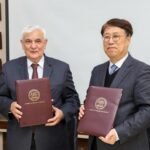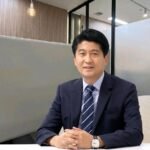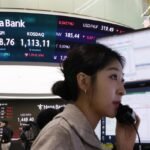
South Korea plans to tighten its control over trade in cryptocurrencies in the country by mandating information disclosures for listed virtual assets and requiring issuers of reserve assets for riskier stablecoins.
The Financial Services Commission (FSC), the regulator, revealed the initiatives during a Virtual Asset Committee meeting on Wednesday.
FSC Vice Chairman Kim Soyoung, who doubles as the committee chair, said the government plans to soon set up task forces with related agencies to review the issues discussed at Wednesday’s meeting.
Once the working-level reviews are completed, legislative proposals will be prepared, with the goal of implementing in the second half of the year, he said.
New regulations aim to align the country’s rules with global standards while addressing domestic market challenges such as a more transparent cryptocurrency market system and enhanced investor protection, he said.
The FSC plans to turn the current self-regulatory “best practice” guidelines for virtual asset listings, set by the Digital Asset Exchange Alliance (DAXA) in July 2022, into a formal public regulatory framework. This includes introducing a mandatory information disclosure system akin to that in the capital market, such as regular disclosures on business performance and ad hoc disclosures on significant corporate actions.
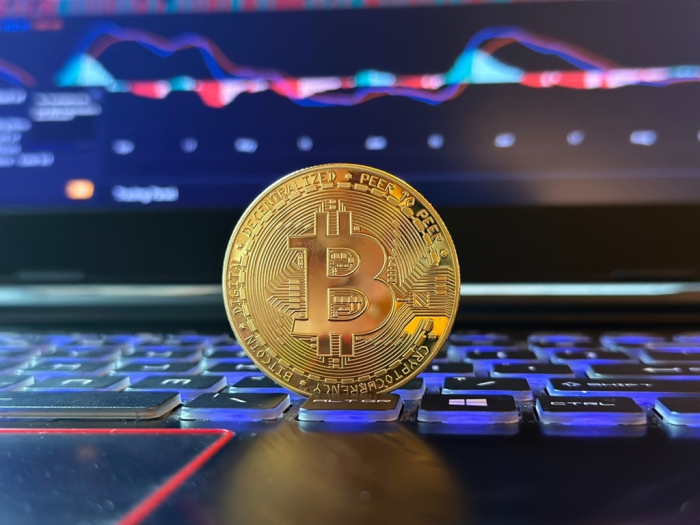
The introduction of mandatory disclosures would protect investors from risks associated with speculative or unstable tokens such as “meme coins,” which often cause significant losses due to extreme price fluctuations, according to the FSC.
BITCOIN LIKELY TO FACE LESS STRINGENT RULES
“Major economies around the world are accelerating the process of establishing regulations on virtual assets. Korea needs to align itself with the global standards,” Kim said at the meeting.
Sources said Bitcoin and some other major virtual assets functioning as de facto reserve cryptocurrencies will likely face less stringent regulations, while already listed coins will be given a grace period before new rules are introduced.
Reserve cryptocurrencies with little chance of becoming scam coins could be excluded from tougher rules, they said. A scam coin is a fake cryptocurrency that was created to make money for the creator while stealing money from people who supported and invested in the coin.
Virtual assets issued abroad may also benefit from eased requirements.
Under the current self-regulatory framework, assets traded for at least two years in sufficiently regulated overseas markets are subject to less stringent regulatory scrutiny in Korea. Exchanges handling such assets assume responsibility for meeting disclosure obligations.
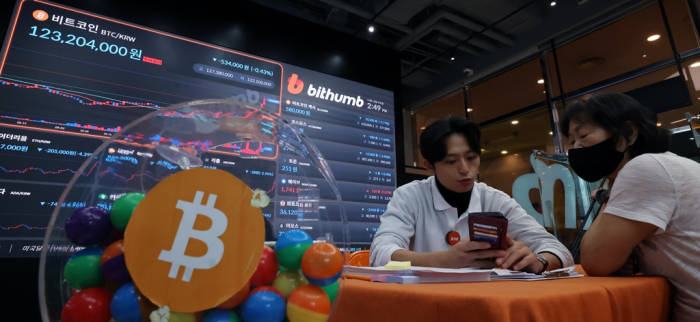
STABLECOIN
The FSC committee said stablecoins will be a central part of new regulations.
Measures under consideration include imposing strict obligations on coin issuers to manage reserve assets and explicitly guaranteeing investors’ redemption rights to align with global regulatory trends.
A stablecoin is a type of cryptocurrency where the value of the digital asset is supposed to be pegged to a reference asset, which is either fiat money, exchange-traded commodities such as precious metals or industrial metals, or another cryptocurrency.
The committee is also considering introducing tougher regulations to prevent unethical business practices, ensure internal control standards and address potential conflicts of interest. Other potential measures include restricting the simultaneous engagement of virtual asset service providers in multiple business activities, such as trading, brokerage, custody, advisory and evaluation.
Some industry officials have expressed concerns that more stringent regulations could drive cryptocurrency investors out of Korea, or a “crypto exodus.”
GLOBAL TRENDS
As virtual assets become popular, crypto exchanges have sprung up globally, coming under scrutiny by regulators to ward against the new asset class emerging as a haven for money laundering and financial crimes.
Korean regulators said they are particularly concerned about young people who see virtual assets as a quick path to prosperity amid persistently high unemployment and skyrocketing home prices.
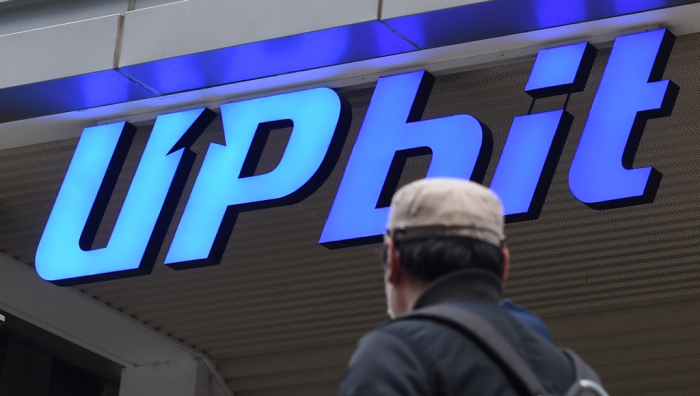
The number of Koreans investing in cryptocurrencies recently broke past 15 million – about 30% of the country’s population. Bank of Korea data showed that Korea was home to 15.6 million retail cryptocurrency investors as of the end of November, up 610,000 from a month earlier.
The figure is the total number of crypto investors with accounts in the country’s top five crypto exchanges: Upbit, Bithumb, Coinone, Korbit and Gopax.
The intensity of trading has often seen cryptocurrencies such as Bitcoin trade at a much higher rate, called the Kimchi Premium, in Korea.
Korea is not alone in tightening regulations on virtual assets.
The European Union began implementing the Markets in Crypto-Assets (MiCA) regulation at the end of last year, which comprehensively addresses entry and operational requirements for service providers, trading and disclosure regulations.
Hong Kong and Singapore are positioning themselves as “virtual asset hubs” by gradually clarifying ambiguous regulatory areas.
The US is calling for tighter regulations on virtual assets, including establishing stablecoin regulations.
By In-Soo Nam
isnam@hankyung.com
Jennifer Nicholson-Breen edited this article.

